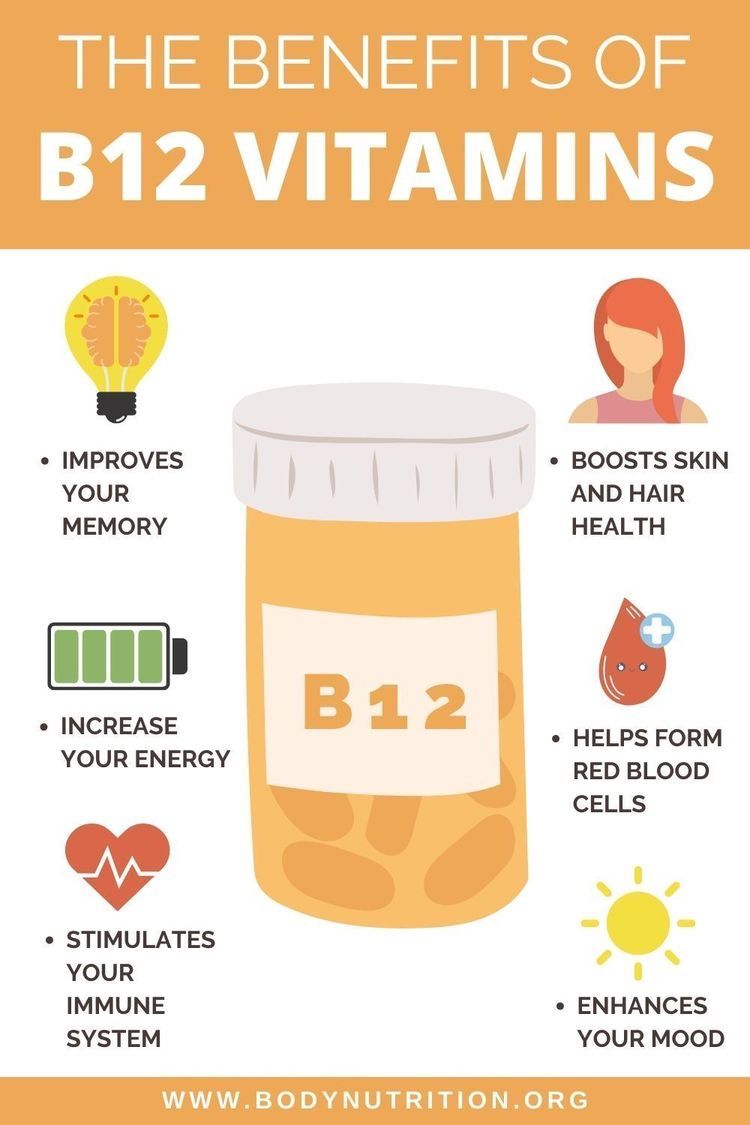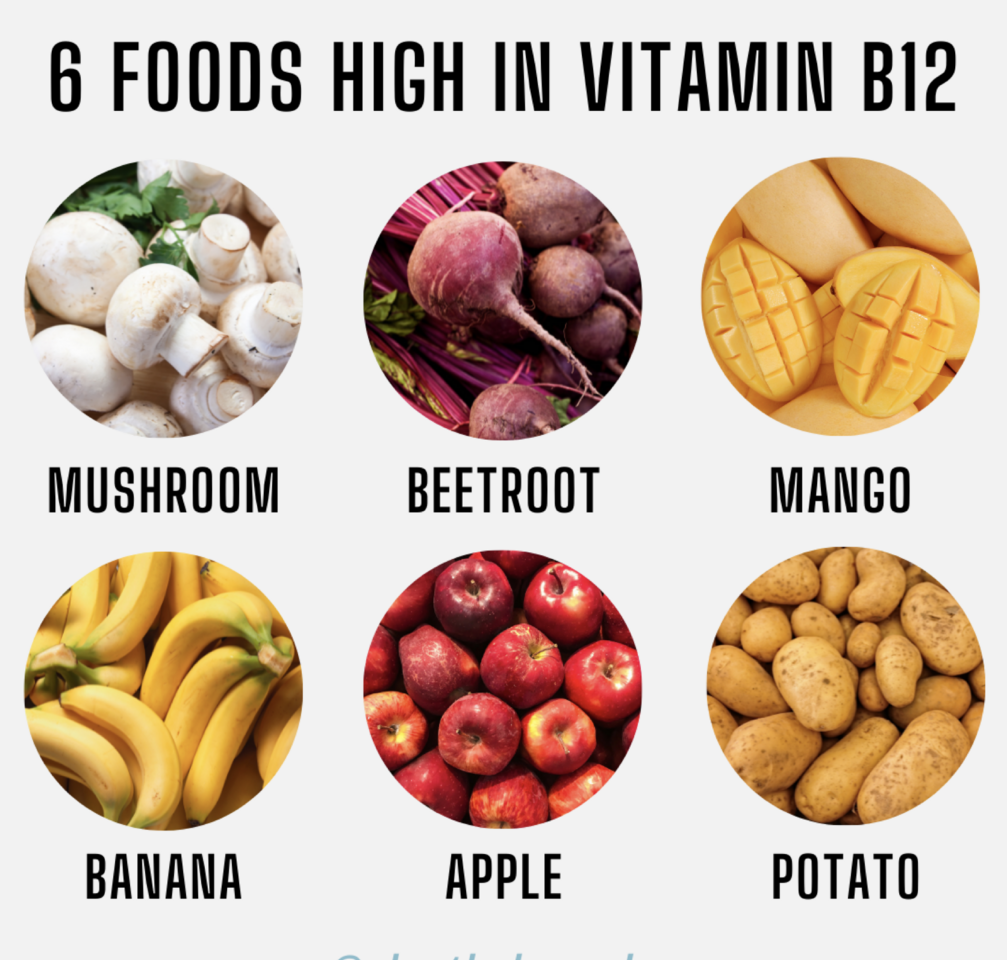Importance of vitamin B12
Vitamin B12, or cobalamin, is naturally found in animal foods. It can also be added to foods or supplements. Vitamin B12 is needed to form red blood cells and DNA. It is also a key player in the function and development of brain and nerve cells.
What is vitamin B12?
Vitamin B12, also known as cobalamin, is the generic name used for a group water-soluble compounds that belong to the family of B-vitamins. We can find vitamin B12 mainly in animal-based foods and fortified products.
Otherwise defined: Vitamin B12 is a water-soluble vitamin with many essential functions in your body.
It’s necessary for keeping your nerves healthy and supporting the production of DNA and red blood cells, as well as maintaining normal brain function.
The Reference Daily Intake (RDI) is about 2.4 mcg but slightly higher for those who are pregnant or nursing (32).
Vitamin B12 is absorbed in your stomach with the help of a protein called intrinsic factor. This substance binds to the vitamin B12 molecule and helps your blood and cells absorb it.
Excess vitamin B12 is stored in your liver. If you consume more than the RDI, your body saves it for future use.
Vitamins are essential for our brain to function normally. Each type of vitamin directly or indirectly contributes to the development of the human brain. Experts from all over the world consider vitamin B12 as the food for the brain. Lack of B12 may lead to anemia and cause damage to nerves in the brain. Also, a lack of this vitamin will cause blood disorders and weaken the heart. Because of this, we need to maintain the right amount of B12 in our bodies.
What are the functions of vitamin B12?
Vitamin B12 is needed in many important bodily processes, particularly to keep the healthy functioning of our brain and nervous system. Vitamin B12 works together with folate in many functions, including to create our genetic material (DNA and RNA), to form our red blood cells and to help break down an excess of homocysteine, an amino acid that can put us at higher risk of cardiovascular disease, when present in high amounts.

What happens if I have too little vitamin B12?
Vitamin B12 deficiency is not common in people who have a balanced and varied diet; however, it can happen to vegetarians and vegans, as they have limited sources of this vitamin in their diet. It can also be caused by specific health conditions that affect the absorption or use of this vitamin in our bodies, such as pernicious anaemia.
Vitamin B12 deficiency can lead to megaloblastic anaemia, a disease that causes our bodies to form unusually large red blood cells in lower amounts. The few misshaped red blood cells then have difficulties delivering enough oxygen around the body, leading to constant fatigue and shortness of breath. This condition can also be caused by folate deficiency.
On the long-term, vitamin B12 can also harm the normal function of our nervous system and lead to irritability, memory disturbances, depression, and disorientation. In advanced stages of severe deficiencies, symptoms can be more serious and irreversible.
Does vitamin B12 interact with other nutrients?
Folate and vitamin B12 share many important tasks in the body, which support the healthy function of our cells and the nervous system. If we don’t get enough folate or vitamin B12 for a long period, their common functions become compromised and our health can be affected in the long-term.
When should I pay extra attention to a vitamin B12 deficiency?
People who rarely eat animal products in their diets need to pay attention to their vitamin B12 intake since this vitamin is mainly found in animal products. If that’s the case, pay attention to food labels and look for foods fortified with vitamin B12, such as breakfast cereals and plant-based alternatives to yogurt and milk. If necessary, check your national dietary guidelines or get professional advice on the need to add a vitamin B12 supplement to your diet.
Older adults also need to pay attention to vitamin B12 deficiency since they are more prone to having stomach diseases or using medications that lower the absorption of this vitamin from foods.
What foods contain vitamin B12?
Vitamin B12 is mainly found in animal products such as:
- meat
- fish
- eggs
- dairy products
- fortified foods (such as breakfast cereals and plant-based alternatives to yogurt and milk).
Yeast is also a rich source of vitamin B12, but contrary to misconceptions, it doesn’t really increase our vitamin B12 intake, since we only eat it in very small amounts.
Other references: https://www.healthline.com/nutrition/vitamin-b12-foods#b-12-basics
